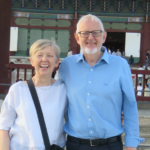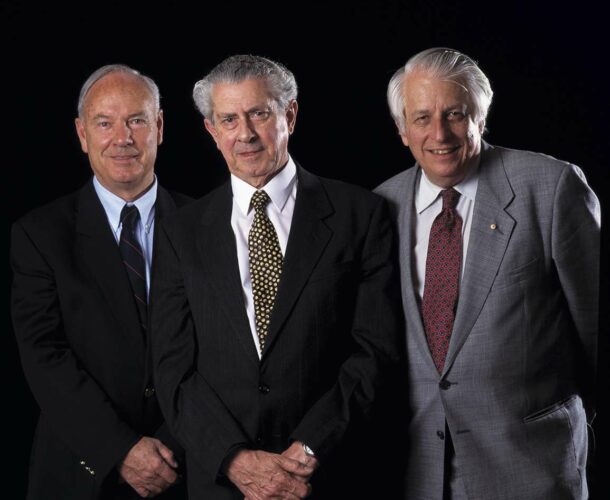“It seems unimaginable that three young men (Don Metcalf, Gus Nossal and Jacques Miller) would each graduate from the same medical school (Sydney University), each be introduced to medical research by the same mentor (Patrick de Burgh, Bacteriology Department) within a few years of each other and that each would move to Melbourne to spend their entire research careers at the same institution (Walter and Eliza Hall Institute).
Each has had a spectacular career crowned with international awards and membership of learned societies and they remained good friends, with Nossal becoming institute director and their mutual boss. They arguably became the three most distinguished scientists in Australian medical science. It was therefore completely appropriate and a very memorable event when all three officially ‘retired’ together from the institute at a gala ceremony.” – Professor Nick Nicola
International symposium honours three research greats
To celebrate a combined 100 years of medical research between them, Professors Gus Nossal, Don Metcalf and Jacques Miller retire, with an international symposium held in their honour.
Alumni from around the world return to Melbourne to mark the occasion. The symposium gives staff, both past and present, the chance to discuss the latest developments in immunology research, and to pay homage to three remarkable men and their contributions to modern medical research.
Professor Jacques Miller
Noted for his discovery of the function of the thymus, Miller went on to demonstrate the existence of two major types of lymphocytes (to later be known as T and B cells), and how they interact in antibody production. He is credited as the last person to have identified the function of a major organ.
Professor Don Metcalf
Metcalf’s 20-year effort to identify and then purify blood growth hormones resulted in the discovery of colony stimulating factors (CSFs). CSFs revolutionised the treatment of cancer patientsby boosting their immune systems.
Professor Gus Nossal
With a substantial contribution to fundamental immunology, Nossal’s work is noted for three key outcomes:
- Proving the clonal selection theory (that a single B lymphocyte can only make one antibody).
- Describing how self-reactive B cells are either eliminated or neutralised.
- Measuring antigen capture and persistence on specialised dendritic cells in lymphoid follicles preceding germinal centre formation during an immune response.
When is a retirement not really a retirement?
All three of these remarkable scientists continued to make contributions to medical research, despite officially retiring.
Miller extends his knowledge through presentations to staff and students, in addition to speaking at public events.
Until his health failed in 2014, Metcalf worked continuously after his retirement interrogating researchers at seminars and providing mentorship to PhD and Honours students.
Nossal is a strong science advocate and supporter of the institute’s research, staff and students in his role of patron.





